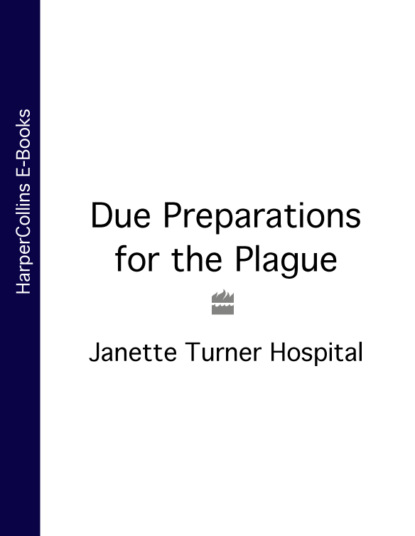По всем вопросам обращайтесь на: info@litportal.ru
(©) 2003-2024.
✖
Due Preparations for the Plague
Автор
Год написания книги
2019
Настройки чтения
Размер шрифта
Высота строк
Поля
“Hmm. Maybe. I was unable to see a copy of that report.”
Lowell frowns. “Well, I saw it.” Then he thinks about it. “Maybe I didn’t. I guess they told me and it didn’t occur … It was classified too?”
“Classified.”
“Did you know it was the anniversary—?”
“Of course. That’s why I believe it was suicide. I’ll tell you what I think. I think he made the arrangements I’m about to discuss with you, and then his conscience was clear. It was the thing he had to do, and then he could eliminate himself. But either way, it’s … well, really, I’m ethically bound. There are only two sacrosanct relationships, aren’t there? Priests and shrinks. He might have been mad, or he might have been right. I’m supposed to be the one who can tell.” There is something plaintive about the laugh this time.
He made arrangements, Lowell thinks wearily. Surprise, surprise. So there will be conditions. There will be expectations. And still Lowell will not measure up.
For a month, one calm month, he has been almost at peace.
“This is not a situation I have ever encountered before,” Dr. Reuben says. In the Public Garden, the trees are turning red and gold. “And even now I can’t swear that I haven’t been infected with his … condition. I mean, I can observe myself becoming paranoid, which is an interesting and curious thing for a psychiatrist to observe in himself. Do you see that man staring at us?”
“Where?”
“The man on the bench over there.”
“The one reading the newspaper?”
“He’s staring at us.”
“He’s watching that little kid on the tricycle.”
“Maybe,” Dr. Reuben says. “But you see what I mean? Now that he’s gone, I’ve started to think like your father. Just the same, it seems better to err on the side of caution. And I made your father a promise. I did make him a promise. And I could tell that once I had made that promise, something shifted within him. His conscience was clear. Or as clear as past events would ever permit. Let’s sit here for a while.”
From a bench beside the pond, they watch the swan boats with their cargo of tourists rock gently in one another’s wakes. Willows trail in the water. Families throw crumbs to the ducks. “You will make of his message what you will,” Dr. Reuben says. “Even I haven’t seen the tapes or the journal, you understand.”
“You’ve got something to give me from him.”
“Indirectly. I have a key to give you. I will leave it on this bench and I want you to put your hand over it, very casually, and stay like that for a full ten minutes after I walk away.” He gives another embarrassed laugh. “I am quoting your father’s directions verbatim. If nothing else, he had a finely developed sense of the dramatic.”
Lowell thinks about this. A phrase comes back to him suddenly, falling out of a willow tree: the necessary rituals of risk.
Where are you going, Daddy?
I can’t tell you that, son, but I’ll bring back a present. One for Mommy and one for you.
When will you be back?
I can’t tell you that, Lowell.
For show-and-tell, we have to share if our daddy is on a trip and we have to show pictures.
I’m sorry, Lowell, but I can’t tell you where I’m going.
What will I say in show-and-tell? Will I say that my daddy is not allowed to tell where he’s going?
No, no, you mustn’t say that I can’t say.
What will I say?
You could tell them that your daddy’s on a business trip to Hawaii.
You’re going to Hawaii?
No, I’m not going to Hawaii, but that’s what you can say in show-and-tell.
I can tell them a lie?
Sometimes, when you have to look after the whole country, a lie is not really a lie. These are the necessary rituals of risk, Lowell. Do you understand? If you say anything, you could put lives in danger.
It was a catechism that Lowell often rehearsed to himself. I must never never say that I’m not allowed to say.
“This key?” Lowell asks. This damned key to a Pandora’s box of secrets that he has no wish to know.
“It’s the key to a locker at Logan Airport,” Dr. Reuben says. “International terminal. Locker B–64.”
Lowell chokes.
“Are you all right?”
“That was the flight number,” Lowell says.
“Air France 64, yes. You can see a great deal of planning went into this. Don’t drive or take a taxi, take the subway. I’m quoting your father again.”
“And I must never never say why I’m not allowed to say.”
“Excuse me?”
“His rules,” Lowell says. “The necessary rituals of risk.”
“He felt hunted. I can tell you that. He was a man in mortal agony. That might make it easier to forgive him. Planning this gave him a little peace at the end.”
“So what is in the locker?”
“I don’t know precisely. A journal, I believe. And some papers, possibly classified ones. And some videotapes—I don’t know of what—but the tapes are of crucial importance. Crucial, your father said. I haven’t seen any of this material. I didn’t put it there. Your father put it there and gave me the key, and made me promise to hand-deliver the key to you.”
“When did he put it there?”
“I don’t know exactly. But recently, obviously.”
“My father was in Boston recently?”
“Yes. He saw you, he said.”
Lowell feels an oceanic surge of rage and grief. “He was good at watching. It was the thing he did best.”






